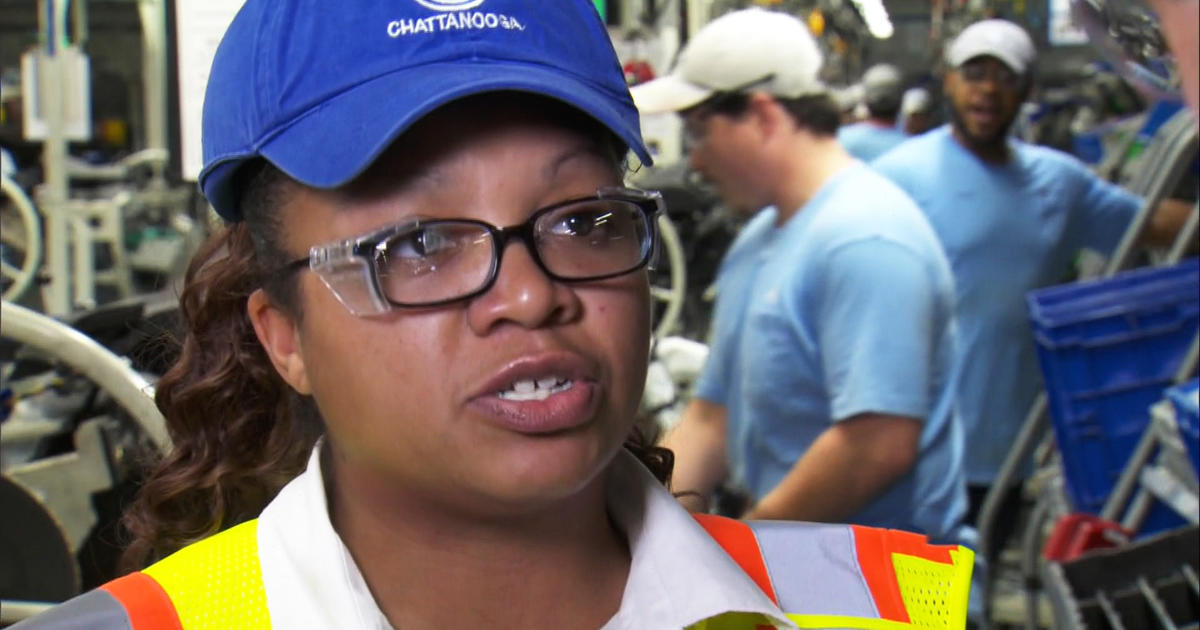GM plant closings, layoffs indicate a cooling U.S. economy
General Motors' decision to close five plants and lay off tens of thousands of workers in the U.S. and Canada is another warning sign for the mainly healthy U.S. economy. GM's bid to cut $6 billion in yearly costs and focus on making larger SUVs instead of sedans signal that the largest U.S. automaker is taking steps to gird itself before an economic downturn forces its hand.
"We recognize the need to stay in front of changing market conditions," GM Chairman and CEO Mary Barra said in a statement announcing the reductions.
This gearing up for what GM sees ahead is an indication that the long-running U.S. economic expansion is losing steam, and the trade war isn't helping.
Those changing market forces include declining U.S. vehicle sales (they peaked in 2016) and rising costs of raw materials due to U.S. tariffs on imported steel and aluminum. GM's main rival Ford, for one, has said it took a $1 billion hit due to the trade policies, and it plans to reduce its salaried workforce by the second quarter of 2019.
Tariffs hurting automakers
"It is becoming increasingly clear that the trade war with China is hurting manufacturers in both countries," Ian Shepherdson, chief economist at Pantheon Macroeconomics, wrote in a recent research note. "Large automakers like GM are facing the brunt of these tariffs," Gregory Daco, chief U.S. economist at Oxford Economics, told CBS MoneyWatch.
U.S. economic conditions are robust enough to curtail a slew of companies from following GM's lead, but some would still likely make cost-cutting moves in the months ahead, Daco said, "especially if you look out to 2019 and 2020."
The closures are symbolic of broader developments in the U.S. economy, according to the economist. "Yes, we have strong fundamentals in the labor market and employment, a strong consumer spending environment, and the business environment remains strong," Daco said. "But uncertainty over trade policy -- and tariffs on steel and aluminum -- are weighing on sentiment and input costs."
Heavy metal
Caterpillar is among U.S. manufacturers to cite increased expenses from the trade war. The construction-equipment maker recently warned that manufacturing costs had risen due to higher material and freight prices. Consumer-goods giant Honeywell has also said it anticipates taking on hundreds of millions of dollars in new tariff-related costs.
In addition to uncertainty about tariffs, other headwinds for U.S. companies include increased borrowing costs as interest rates rise and moderating global demand. And while Washington and Beijing could be in for an extended trade war, the incoming Congress is less likely than its current membership to add further to the corporate tax cuts that have bolstered the economy.
Recent economic data has been generally strong, but it's also shedding light on trouble spots, such as higher mortgage rates crimping demand for housing. Weakness in that market is expected to spread to other rate-sensitive areas.
A report last week showed that the slowdown in orders for U.S. durable goods continued for a third consecutive month in October. "The drop in oil prices will soon begin to make things worse, pushing down [capital expenditures] in the sector," noted Pantheon's Shepherdson.
Given that manufacturing accounts for just 12 percent of U.S. GDP and 9 percent of payrolls, it would be "hard for the sector to depress the whole economy materially, though a sustained softening would take the edge off overall growth," he added.
Chain reactions
"The effects of these types of trade tensions actually filter through the broader economy," said Oxford's Daco, who noted that as goods affected by tariffs become more expensive, spending is curtailed and companies adopt a more cautious approach in planning for the future.
The U.S. economy expanded at an estimated 3.5 percent clip in the third quarter, after increasing 4.2 percent in the second. Fourth-quarter GDP growth is currently tracking at 2.5 percent, according to analysts at IHS Markit. Most economists expect the U.S. will slow in 2019, with Goldman Sachs projecting GDP growth will slip to a 2.5 percent pace in 2919 from 2.9 percent in 2018.
The International Monetary Fund now projects global growth at 3.7 percent for 2018 and 2019, 2 percentage points lower than its forecast in April.



